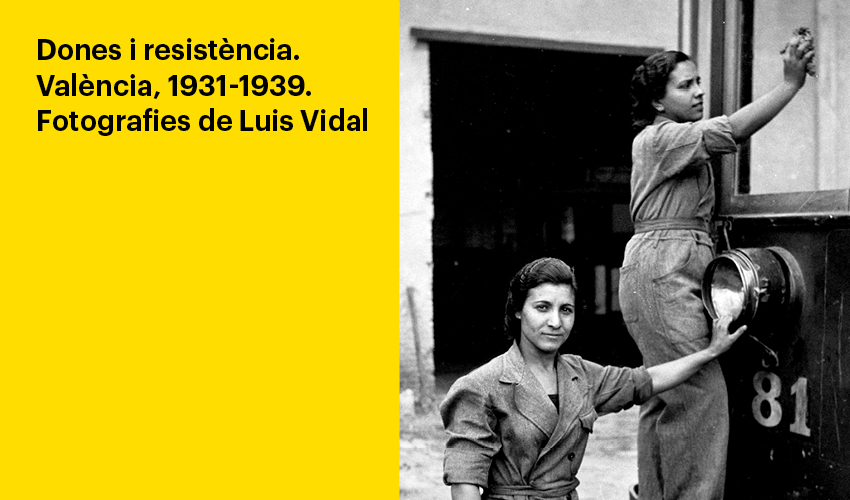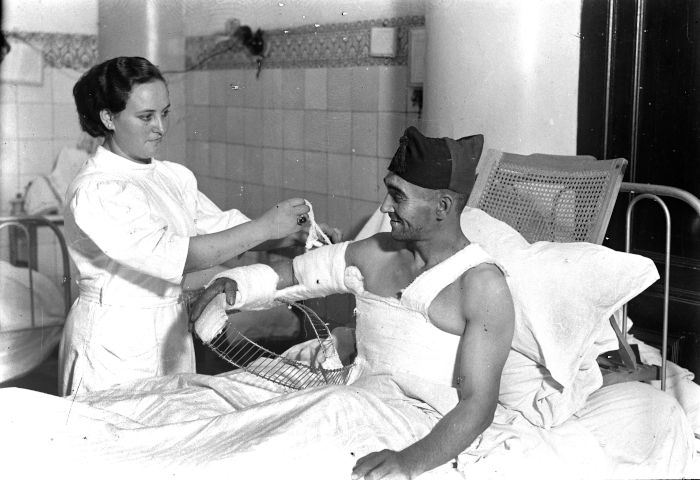
Valencia’s republican period has been an exciting time full of interest, especially the war era. War made Valencia a city located at the rear, far from the front, and in it, change happened constantly. The Republic’s capitalisation was immediately followed by the complete displacement of the government in the face of what looked like Madrid’s imminent fall, the memorable Congreso de Intelectuales Antifascistas held at the city hall, the presence of international reporters at the Reina Victoria hotel, with another hotel –Metropol– becoming the headquarters of the soviet embassy and the KGB. The period that saw Valencia as the rearguard of the Spanish Civil War and the previous Republic years without which it can’t be explained, was a place of crisis and violence, but also freedom and metamorphosis; and in it flourished women and their claims. This is the aspect we seek to shed a light on, and it’s possible thanks to Vidal’s photo archive.

The pictures of Luis Vidal Corella (collaborator for El Mercantil Valenciano, reporter for ABC, Ruedo or Agencia EFE) show a republican Valencia in effervescence, where, for example, women take the lead of Social Assistance, which was vital for these times of senseless violence. The photojournalist’s lens captured orange packers, uniform tailors, nurses and street vendors, but also tram drivers and, obviously, front militia fighters. Women take the lead daily and in an unusual manner, such as when Vidal photographed Dolores Ibárruri “la Pasionaria” in Teruel, or actress Margarita Xirgu alongside Federico García Lorca at the Teatro Principal. We will also see the rearguard and front hospitals, social dining rooms, the collection of funds organised by the Agrupación de Mujeres Antifascistas led by Pilar Soler and Consuelo Barber to support Madrid. The photo archive of the relentless Vidal also reflects the daily life, Child Festivities and the lines of women eager to vote in 1936, where religious ones stood out. A whole panoramic view on a time of hope for equality and women’s claims, rooted out shortly after by the ideas of Pilar Primo de Ribera’s Sección Femenina, who brought the victors with them.












